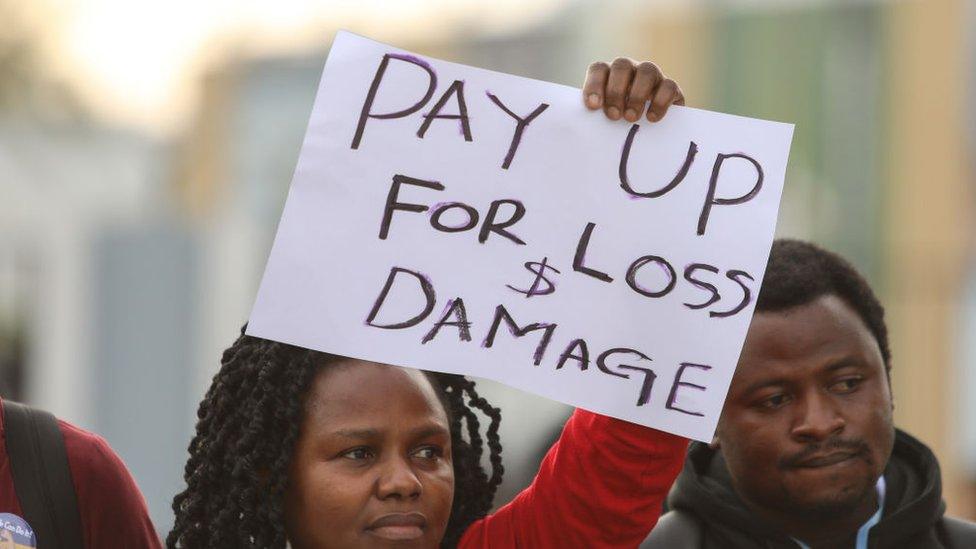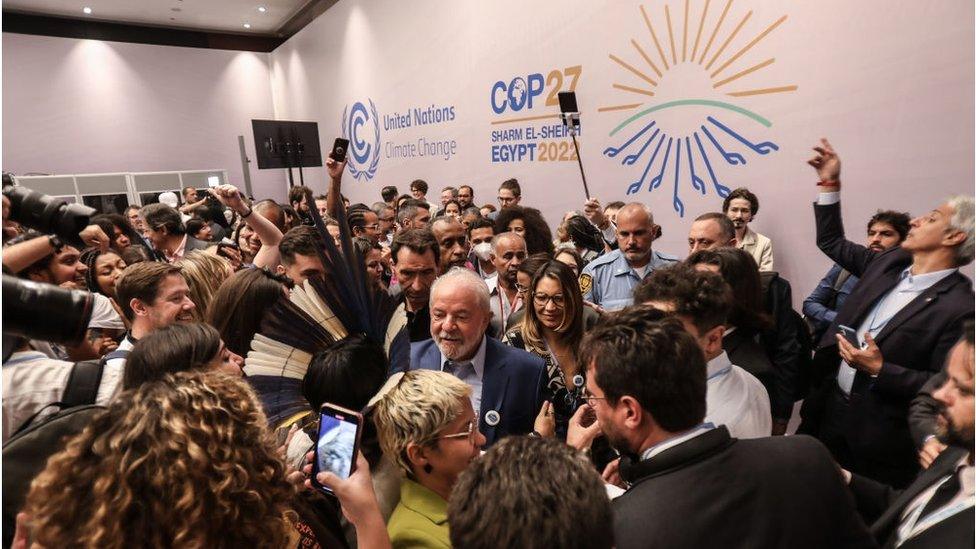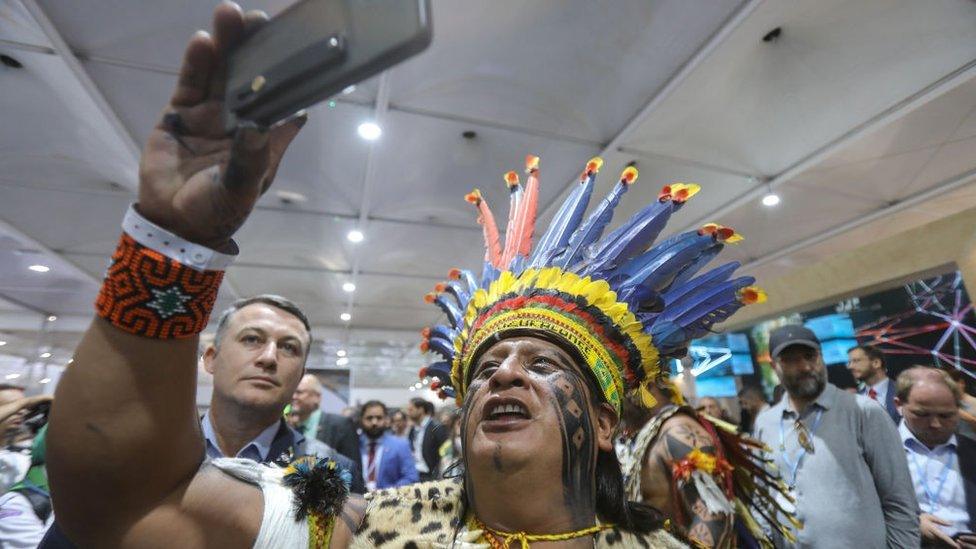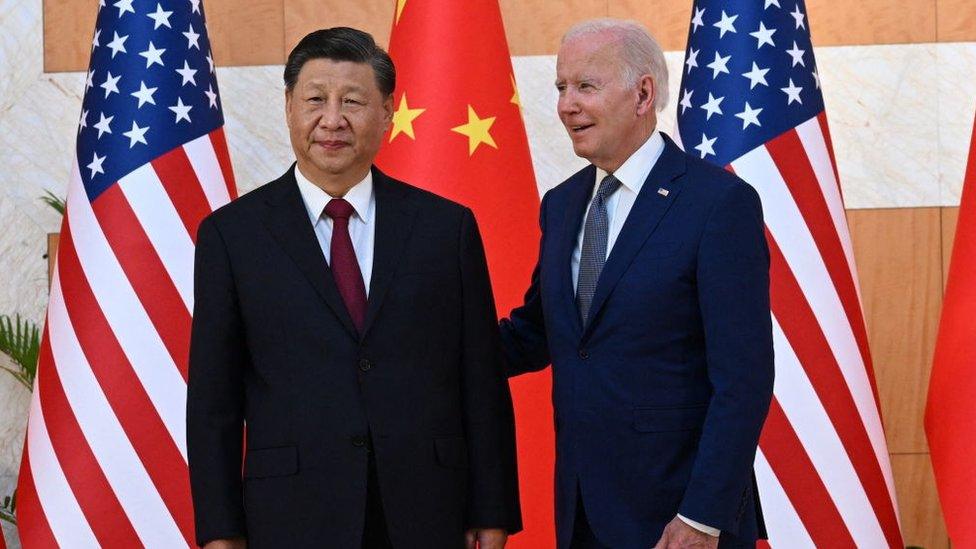COP27: What are the sticking points in COP27 negotiations?
- Published
- comments

COP27 climate talks in Sharm el-Sheikh were meant to end on Friday, but have run into the weekend because of deep divisions between nations.
The Egyptian hosts are trying to broker an agreement among almost 200 countries after two weeks of negotiations.
These are the major areas of disagreement:
1 - "Loss and damage"
The biggest sticking point by far here is the need for a new fund to help countries deal with the immediate impacts of climate change.
The issue is known as "loss and damage" in the framework of UN talks.
Developing countries like Tuvalu want a new financing facility to be established here in Egypt.
Drought is hitting the island hard, while at the same time the rising seas are threatening their future as a nation.
"People are now going without water, they are being rationed to two or three buckets of water a day," Tuvalu's minister for finance Seve Paeniu told BBC News.
Rich countries have resisted this discussion over financing for 30 years, fearing that since they historically played a major role in causing climate change, they will have to pay for it for centuries to come.
But the impacts of flooding in Pakistan, Nigeria and elsewhere in recent years have tipped the balance - here in Egypt the issue of the losses and damages due to rising temperatures finally made it onto the negotiating agenda.

Brazil's president elect was the superstar of the COP
2 - Phasing out all fossil fuels
The final discussions at COP26 in Glasgow last year almost fell apart on the issue of coal.
Richer countries wanted to phase out the use of the most polluting fossil fuel.
Larger developing economies including India and China did not.
Cue frantic huddles on the plenary floor as diplomats tried to find a compromise.
They settled on "phasing down" rather than "phasing out".
Here, India and a number of other countries wanted to expand this phrase to include oil and gas.

3 - Keeping 1.5C alive
This was the mantra of the UK Presidency of COP26, and after Glasgow the concept was on life support, according to Alok Sharma, the minister in charge of the talks.
A rise of 1.5C is viewed by scientists as the threshold to very dangerous levels of warming - but there has been considerable worry here that the commitment to the idea would be watered down, especially as India and China were concerned it was no longer scientifically feasible.
"I see the will to keep to the 1.5C goal," said UN Secretary General Antonio Guterres as he returned to the talks.
"But we must ensure that commitment is evident in the COP27 outcome."
4 - US & China
While the recent meeting between Presidents Biden and Xi Jinping has seen some thawing of relations between the world's two biggest emitters, the lack of concrete areas of co-operation between them is hampering the UN climate process.

The meeting between the US and Chinese presidents may aid climate talks
A key example is "loss and damage" and climate finance more generally. Traditionally, the developed nations paid and the larger emerging economies, such as India, China and Brazil did not.
Now the US and EU want to expand the number of countries that contribute - and China is top of their list.
"By the end of this decade, China could overtake the US in terms of its historical cumulative emissions, and is the world's second largest economy, and yet in UN terms it still counts as a developing country," said Bernice Lee, from Chatham House.
"But the US has consistently failed to deliver climate finance and shoulder its responsibility as the world's largest emitter to support the the developing world.
"If China and the US can come to terms, a whole new solution space opens up for the rest of the world."
Follow Matt on Twitter @mattmcgrathbbc, external.